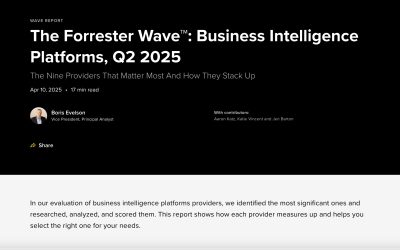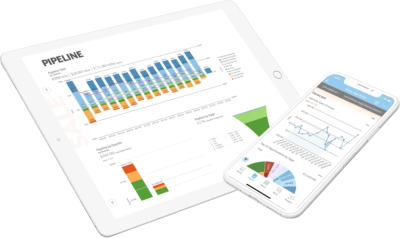How a well-designed data integration solution benefits businesses
Today’s businesses generate enormous amounts of data through routine operations. The company’s sales, marketing, and customer service departments contribute to some of the data produced. Other contributing aspects are the business’s financial dealings, production, and management activities. Each source adds a portion of data to a pool that can be combined and evaluated to uncover strategically important information.
A data integration solution is a process or system that creates a single, complete overview of an organization’s data that a business intelligence software can access to deliver valuable insights based on all of the organization’s data assets, regardless of the primary source. A data warehouse frequently stores the information brought in during the integration process.

Data integration techniques and platforms use various technological and commercial strategies to merge information from multiple sources into usable data sets. Large volumes of data can be extracted from source systems and loaded into an enterprise data warehouse using tools like ETL, data virtualization, and data replication.
Numerous companies and organizations utilize various data management systems, eventually resulting in the existence of different formats of data within a business. The ultimate purpose of data integration is to produce helpful information to solve problems and uncover new insights.
Every industry can benefit from data integration. You can get untapped information from the datasets thanks to the benefits of combining data into a single source. Data integration can be crucial in reducing the need for time-consuming data manipulation techniques.
If data is left idle, it has no value. For data to be fully utilized across all businesses, it must be available to those who require it. An organization can use the knowledge that would otherwise remain concealed by integrating data. By doing this, departments can communicate more effectively, deliver excellent customer service, improve productivity, enhance decision-making, and generally be more productive.
Benefits of data integration
Businesses must handle the large influx of data that constantly accumulates in numerous source systems. An organization may quickly process large amounts of data, extract the most information, standardize the diversity of data, deal with data velocity on time, and increase veracity using a powerful data integration solution. Here are a few ways that the technologies used by data integration companies aid in expanding their companies.
1. Enhanced client experience
Siloed data sets make it difficult to get a whole picture of a consumer persona, affecting sales and revenue. You can only target your customers effectively when you can access real-time customer and historical data. This will improve their satisfaction and loyalty to your brand.
2. Improved cooperation
By integrating data, you can better communicate internally and with external parties. Unexpectedly, automating the information flow can have a favorable effect on how you conduct business. Authorized stakeholders will be able to work together more effectively thanks to data integration because they will all have access to the same information.
3. Streamlined business processes
Real-time access to data helps enhance procedures, increase output, and reduce expenses across various divisions, including sales, manufacturing, marketing, and more. This streamlines business processes and makes them more efficient.
4. Greater competitive advantage
If you have a data integration process in place, it will be easier to plan the steps to increase access to information both internally and externally. This will enable your business to improve products or services to better please customers. You will surpass your competitors by providing higher-quality service to consumers who will become brand-loyal customers.

5. More rapid time-to-value
Businesses employ user-friendly data integration solutions to streamline internal operations, provide a single source of information for their data, and accelerate their access to insightful information. This gives their data value faster. For example, integration of health data in a clinic can speed up urgent choices made by doctors.
6. Increased output
Your productivity will suffer greatly if you have to switch between numerous systems frequently to acquire information. With automated data integration, you may increase productivity by combining your production data from disparate sources into a single location. The insights you gain from further analysis have the potential to increase product output.
7. Optimal inventory management
Forecasts and demand predictions are based on a combination of historical data and sales pipeline information. This will provide you with the tools to optimally manage your inventory and keep you one step ahead of the competition.
8. Anticipated setbacks
Your ability to access real-time, unified data presented in an understandable format will give you priceless insight, enabling you to be proactive and preempt possible bottlenecks before they happen.
9. Removes errors
Data integration allows for easy information sharing between systems. Staff members are able to access CRM and ERP data without having to simultaneously log in to different systems. Errors are fewer, authorized employees have access to the data they require to operate at their peak efficiency, and you obtain the most benefit possible from the systems you currently have.
10. Connectivity
For organizations to compete in the modern economy, aspects of the organization must be connected. Business entities are capable of becoming better connected by connecting their systems that store vital data across departments. This benefits the firm as a whole rather than simply a team or an individual, encouraging intersystem collaboration for the entire company.
Check out some related resources:

Domo Named a Strong Performer in The Forrester Wave™️: Business Intelligence Platforms, Q2 2025

The 11 Best Big Data Analytics Tools in 2025






